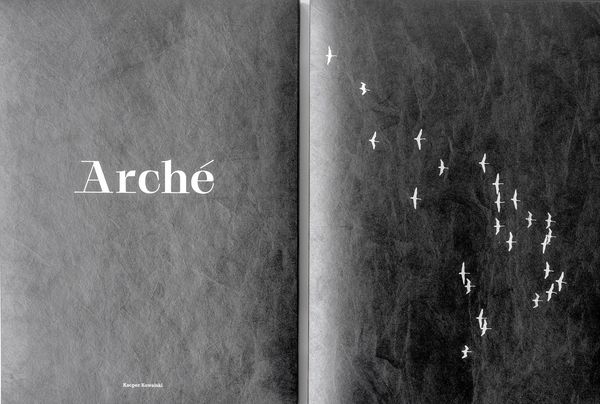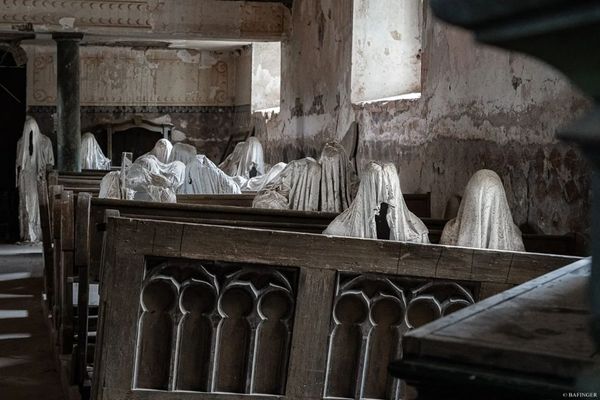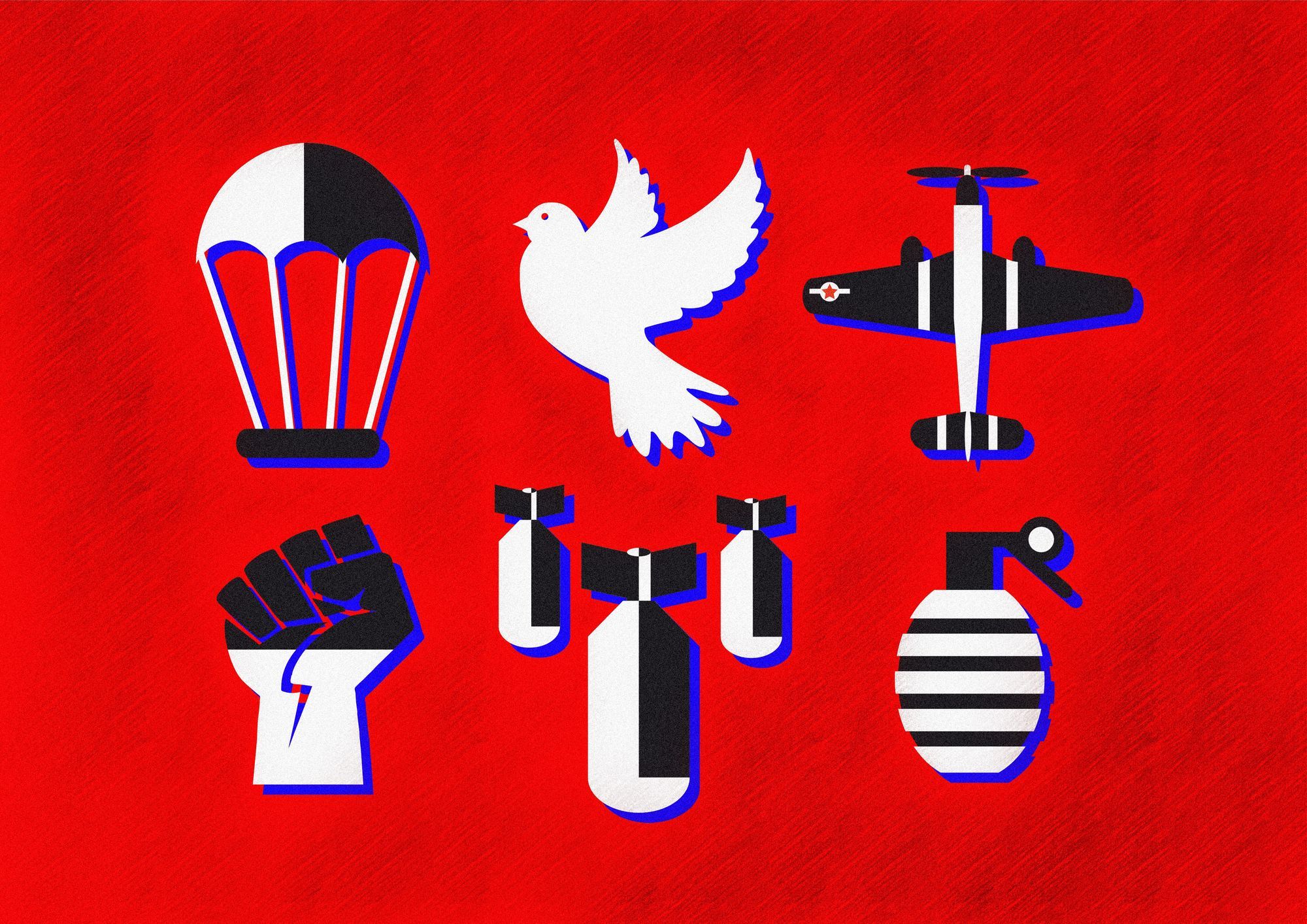The answer is yes; the only question is where exactly.
The ideological roots behind the Russo-Ukrainian conflict, the emerging new world order, and the possible outcomes of the war are very relevant topics worthy of discussion. Norman Naimark, an American historian and professor at Stanford University, visited Budapest to share his knowledge and opinions on the war, the possible new Iron Curtain, and Central and Eastern Europe’s role in the conflict. Conference coverage from Hype&Hyper.
The main theme of the discussion, organized by the Mathias Corvinus Collegium (MCC) and the National University of Public Service, was the geopolitical challenges of Central and Eastern Europe. Professor Norman Naimark, Balázs Mártonffy, Director of the Institute for American Studies at the National University of Public Service, and Réka Varga, Dr., an international lawyer, discussed three crucial aspects of the Russo-Ukrainian war: the background of the conflict, the war’s main players, and what is really at stake.
The discussion began with the war’s background, focusing on the East-West dynamics. Naimark stressed that analyzing the ideological background is inevitable. We cannot ignore how Russians, especially Vladimir Putin, think about Ukrainians. Putin stated last July that Ukrainians are no different from Russians; they belong to the Russian people as they are not an individual ethnic group. Naimark thinks that Putin’s belief that Ukraine does not deserve to be a separate entity independent of Russia has played a crucial role in the ongoing conflict. Putin aims to rebuild the „Russian world,” which cannot happen without Ukraine.

Naimark said that the war, which started in 2013-14, is the result of the inability of Ukraine, Russia, and the international community to reach a compromise. The Minsk agreements were unacceptable to Ukraine. According to the professor, the real problem in 2013-14 was not NATO but the question of Ukraine’s accession to the European Union. Ukraine was moving increasingly closer to the EU and rejected the Minsk agreements. Putin must act, and he did so on the 24th of February.
„Inter arma silent leges” goes the Latin phrase that means „in times of war, the law falls silent.” Varga addressed the question of international law’s role in wars. She outlined two key components of international law related to the war: Firstly, a state’s right to declare war, and secondly, the rules that regulate an ongoing armed conflict. Regarding the first component, Varga argued that Russia did not act lawfully. A war is only legitimate in two cases: if it is self-defense or authorized by the UN Security Council. Despite the clear criteria, Putin argues that his war is legitimate. Firstly, he claims that genocide against Russians took place in the territory of Ukraine, but according to Varga, there is no evidence for this. The Russian president’s second argument is that NATO’s eastward expansion threatens Russia, so the current violence is a pre-emptive move. Nonetheless, this claim does not justify the invasion either. According to Varga, the law does not fall silent if it has been violated.

Mártonffy continued the discussion; he said there is no excuse for starting unnecessary wars and bloodshed. The expert thinks the conflict is more about NATO than the EU. Russia has felt to be on the losing side in the post-Cold War era. Putin perceived his influence and power as declining and became convinced that this is wrong. Mártonffy said the final push towards the invasion was when Ukraine amended its constitution in 2019 to state the country’s strategic goal is to join NATO.
The participants also discussed the role and involvement of the Western powers. The question raised: Is the Iron Curtain coming down again? Naimark said that Ukraine is too big and important, so NATO and the United States cannot ignore it. He believes that, unfortunately, a new Iron Curtain, separating West and East again, is possible. He does not deem that the war was inevitable, as NATO and Moscow had had the opportunity to create a post-Cold War world order in which Russia would have been part of the European alliance. Regarding Ukrainian identity, the professor said that the war significantly strengthened it. Before the invasion, many locals had mixed identities, which also linked them to Russia, but Moscow’s aggression changed this completely. Concerning Russia, Naimark said that Putin's autocracy has become extremely intimidating and oppressive since the war broke out. Hence, the vision of a new Iron Curtain between Russia and the West is realistic. The professor does not believe that a nuclear war will happen but added that many of his colleagues disagree, and he cannot deny that it is a possibility.
Varga explained the legal aspects of the different countries’ involvement in the current conflict. The political objective is to keep states out of the war. The United States has repeatedly stressed that they do not provide Ukraine with information that would directly help Kyiv against Russia since such a high level of intervention would make Washington an active player in the conflict. The international lawyer said that aiding Ukraine does not make the Western powers belligerent per se, but the borders of actions are getting increasingly vague. Intervention would be risky, as Russia’s reaction is unpredictable. It is essential to avoid other countries becoming Moscow’s war target. Mártonffy added that the Western powers de jure (legally) do not participate in the war, but they do de facto (practically). If Russia had the power to control the international law narrative, it would consider the states helping Ukraine belligerent.
The third topic was the war’s possible outcomes and consequences. „What price will the West pay if Russia is alienated from the international community?” – was the first question the participants addressed. Mártonffy said that Russia was on the periphery in the post-Cold War era, and Moscow was rather tolerated than integrated. He thinks the Minsk agreements would have been the most feasible option for peace, but for the Ukrainians, the stakes have been higher than peace. The Cold War came back, but it took a new, different shape, different from the 20th-century Cold War due to globalization’s economic and non-economic effects. Mártonffy believes the world is currently in a transition period.

Varga returned to the topic of international law. She said that the lawful way to end the war would be if Russian forces leave all territories of Ukraine. Another option would be a peace treaty, which would mean a compromise between Kyiv and Moscow and presumably the cession of some Ukrainian territories. The lawyer stressed that peace treaties signed under coercion are invalid, though there are historical examples when such treaties have been accepted. If this would happen in the case of Ukraine, it would send a clear message to the world: any state can achieve what it wants with aggression. She said that the international community’s responses to the violation of international law are crucial and decisive. Nonetheless, the reaction to Moscow’s aggression is weakened by the fact that other states, such as the United States or Israel, have violated the same norms in contemporary history. According to Varga, neither side wants to lose face, but it will be inevitable to end the conflict.
Naimark commented on the war’s impact on Central and Eastern Europe. Does the region have any capacity to influence the Russo-Ukrainian war? The professor stressed that the war is a horrible tragedy in which Central and Eastern Europe is already embroiled. Millions fled to the region because of the war, and the new Russian empire's vision includes territories other than Ukraine, such as the Baltics or Poland. Naimark mentioned the differences between Budapest’s and Warsaw’s positions regarding the Russian invasion. While Poland stands shoulder to shoulder with Ukraine, despite the problematic Polish-Ukrainian relations in history, Hungary chose a different approach. According to Naimark, Budapest’s attitude is much less critical of Moscow than other countries’ position in the region. He believes Hungary's skepticism, for example, about the sanctions' effectiveness is crucial as it signals the lack of unity which might affect the war’s outcome.
An important question was raised during the Q&A: is it possible that if Russia wins in Ukraine, Moscow will decide to attack another European state? Naimark would still say no, but he is not sure as before the 24th of February, he also doubted that Russia would attack Ukraine. The possible targets are NATO members, and, according to the professor, attacking them would be very foolish. But he acknowledged that he said the same about the Russian invasion of Ukraine.
Graphics: Réka Pisla

Arché, or returning to the beginnings of culture | Kacper Kowalski’s photobook

Plants in the language of art—introducing the Czech Haenke project










